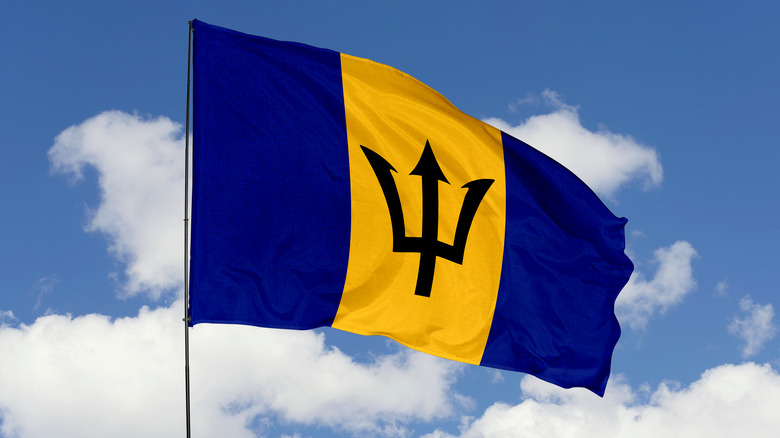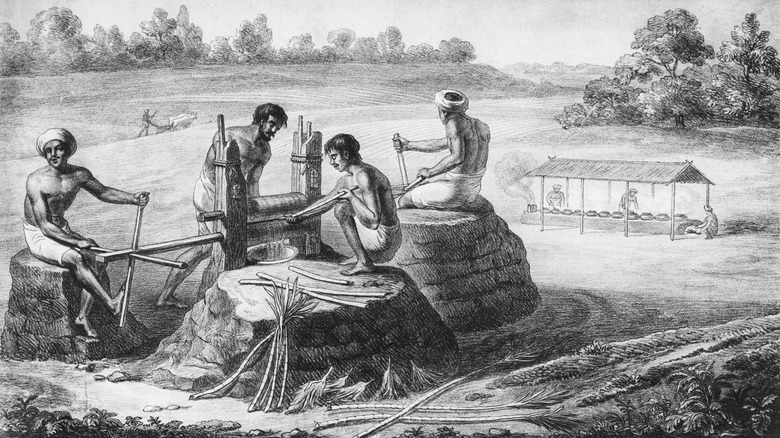The Truth About How Barbados Became A British Commonwealth
In November 2021, the Caribbean nation of Barbados voted to replace Queen Elizabeth II as its ceremonial head of state in favor of the country becoming a republic. The ceremonial move effectively reversed centuries of British history on the island and poised the country for its move forward into the future. Though the country has been independent for over half a century, the nation of about 300,000 people remained a part of the Commonwealth after declaring its independence (via The Washington Post).
The loose collection of nations — which includes America's neighbor, Canada — retains the United Kingdom's monarch as its Sovereign and still officially remains a part of the British Empire. Further, though the islanders of Barbados are ditching the U.K.'s Sovereign as their own head of state, it will ceremonially remain a part of the Commonwealth. And though the concept of being a part of the Commonwealth is, in 2021, more of a ceremonial matter that has no real bearing on anyone's life, the move to divorce itself from its colonial past has a certain significance for the people of the island. That's because the inhabitants are descended from slaves, and in recent years, have sought reparations.
Colonization, slavery, and sugar
In the main, the general outline of Barbados history reads almost exactly like that of just about every other island in the Caribbean Sea. The island had been inhabited by natives for thousands of years, only for them to be wiped out via disease and/or conquest once European explorers and colonizers came sniffing about in the 15th and 16th centuries. From there, according to the island's website, slaves were brought in to work the sugar plantations, while wealthy whites controlled the island's governance and economy. Such was the case in Barbados from the arrival of the British in 1625 until the abolition of slavery in 1834. From there, a four-year "apprenticeship" period followed, wherein the Barbadosians could live in their slave huts for free while learning trades.
Meanwhile, the island retained its ties to its colonial occupiers until beginning to shuffle them off in the 20th century. According to CNN, the island gained its independence in 1966 while at the same time retaining its ceremonial affiliation with the Crown.

